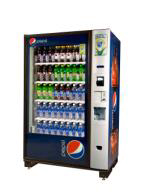PepsiCo offers to buy all shares of its two main bottlers
Coca-Cola and Pepsi spun off their bottlers in the 1980s and 1990s on the assumption that by selling off the bottling rights, they could keep the companies asset-light and less capital-intensive. The beverage companies just produce the concentrates and syrups. Bottlers do the manufacturing and distribution, usually with exclusive rights within a defined geographic region.
So why is PepsiCo now doing a U-turn on its previous policy and wants to purchase the bottlers?
The bottlers are generally less profitable and more capital-intensive than the beverage companies they serve. They always face strong operational challenges.
It was pointed out that if PepsiCo had owned the bottlers last year, PepsiCo’s reported results in 2008 would have had operating margin cut to 13 percent from 16 percent, and its returns on invested capital to 41 percent from 42 percent.
So why is PepsiCo buying its bottlers? The answer is: to streamline and enhance its distribution capabilities and to gain ripple-effect benefits from that.
PepsiCo is much more than a carbonated soft-drink provider. It has been moving heavily into non-carbonated beverages as its customers’ tastes change. Well over half of its sales come from snacks and other non-beverage products.
Today, PepsiCo produces, markets, and distributes a myriad of salty, sweet, and grain-based snacks and other foods.
PepsiCo’s dominance in many of its lines gives it pricing power. Last year, for example, it pushed through price increases at Frito-Lay North America (a snack) that did little to detract from volume growth. It often executes price increases by reducing the weight of individual packages rather than by actually increasing the price per package.
PepsiCo already has a direct store-delivery network. PepsiCo states that the combination will create a fully-integrated supply chain and business model positioned to accelerate revenue growth. It estimates synergies of over USD 200 million per year.
The company also expects to gain more control over the distribution of non-carbonated beverages and niche products. The carbonated-beverage market is declining in North America, which has led PepsiCo to offer more non-carbonated beverages. But these usually have smaller volumes, and there has been resistance to them from the bottlers, whose business models rely on large production runs and heavy volume. Full ownership of the distributors would eliminate small-product conflicts, allow PepsiCo to experiment more, and improve its ability to bring product and package innovations to market more quickly, reports say.
The deals could also give PepsiCo a new edge against Coke in the high-volume restaurant channel. That is a business Coke has long dominated. While both Coca-Cola and PepsiCo spun off their bottling businesses, Coca-Cola retained the rights to sell to restaurants. PepsiCo handed over some of those duties to bottlers. The consequence was that whereas PepsiCo had the cumbersome task of working with all its regional bottlers to agree on the price and a split of the profits, Coke could offer a single price to national restaurant chains.
Restaurant sales constitute 22 percent of the total volume of carbonates sold in the U.S. Coca-Cola dominates that business with a 75 percent market share, it was reported.
Finally, if PepsiCo were to take over its bottlers now, with valuations lowered, it could pick up assets at relatively low costs. Given the 50-50 stock-cash makeup of the offer and its strong balance sheet, PepsiCo does not see any financial contingency to this acquisition.
The takeover targets themselves have responded cautiously to the unsolicited takeover bid from PepsiCo.
The Pepsi Bottling Group is the world’s largest manufacturer, seller and distributor of Pepsi-Cola beverages. With approximately 67,000 employees and annual sales of nearly USD 14 billion, the Pepsi Bottling Group has operations in the U.S., Canada, Greece, Mexico, Russia, Spain and Turkey.
PepsiAmericas, the second-largest bottler of PepsiCo drinks, operates in 19 U.S. states and the Caribbean as well as in the Ukraine, Poland, Romania, Hungary, the Czech Republic and Slovakia.
On another note, PepsiCo’s plan left analysts wondering if Coca-Cola too will try to buy its bottlers. If the move turns out to be a plus for PepsiCo, Coke might follow its lead.
Bankers will be rubbing their hands. Looks like some good deals are in the offing.

